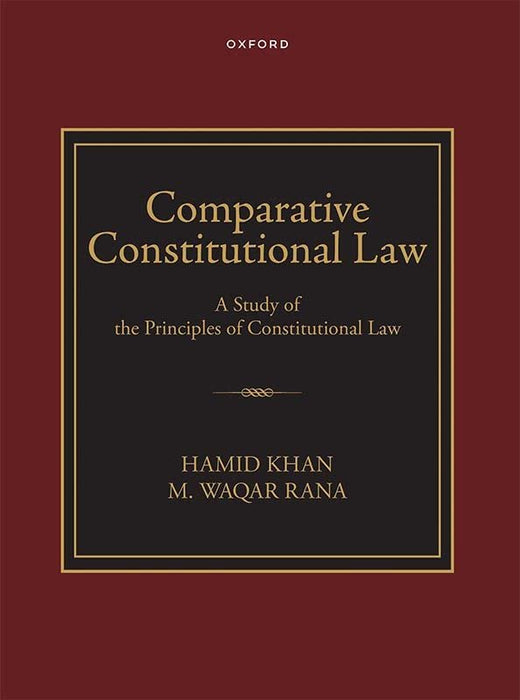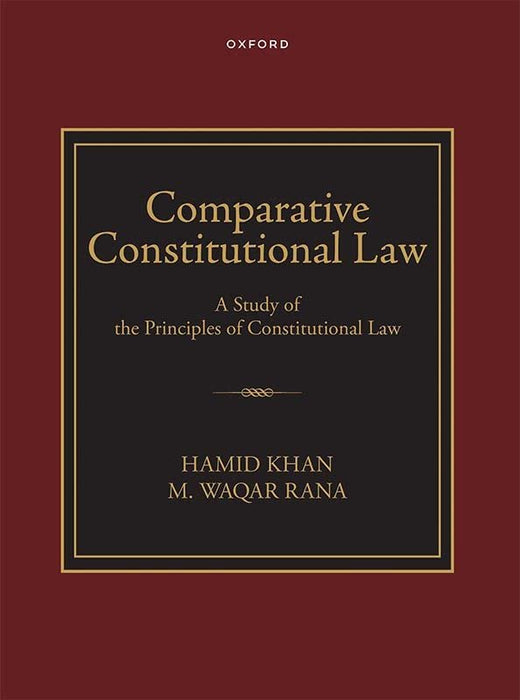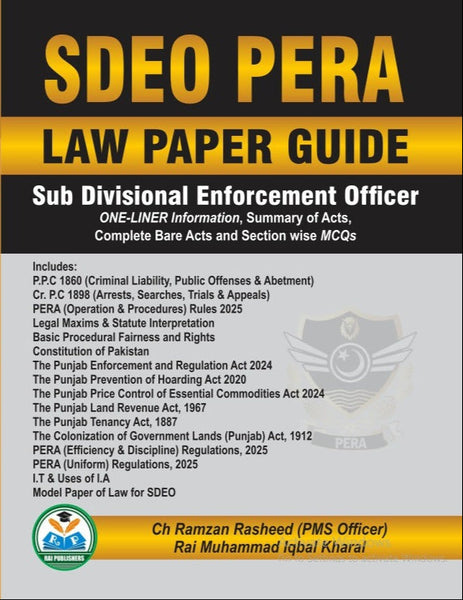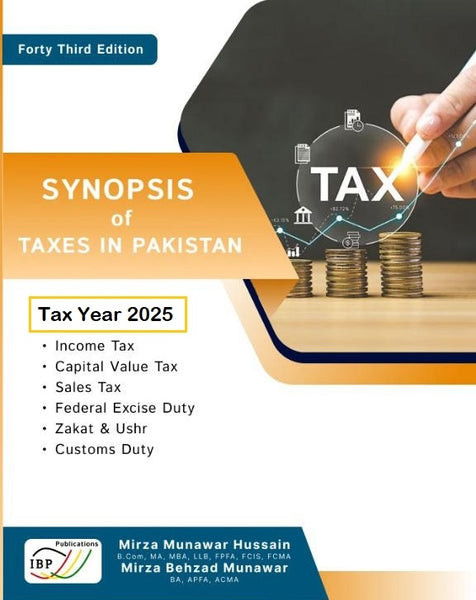Comparative Constitutional Law By Hamid Khan
- Publisher: OXFORD UNIVERSITY PRESS PAKISTAN
- Availability: In Stock
- SKU: 50338
- ISBN: 9789697341849
- Number of Pages: 628
Rs.1,750.00
Rs.1,880.00
Tags: case studies , Comparative Constitutional Law , comparative law , constitution , constitutional frameworks , Constitutional Law , federalism , fundamental rights , government institutions , Hamid Khan , historical context , judicial interpretation , judiciary , law practitioners , legal scholars , M. Waqar Rana , OXFORD Constitutional Law , parliamentary system , presidential system , unitarism
Comparative Constitutional Law by Hamid Khan and M. Waqar Rana is a well-regarded resource that provides a comprehensive analysis of constitutional frameworks from various countries. The book examines key principles, structures, and legal interpretations across different legal systems, making it a valuable resource for law students, scholars, and practitioners. By drawing comparisons between the constitutions of countries like the United States, United Kingdom, India, and Pakistan, the authors highlight significant legal doctrines and governmental structures, facilitating a deep understanding of how constitutional law functions across diverse jurisdictions.
Key Features
-
Detailed Comparative Analysis
- Explanation: Provides side-by-side comparisons of constitutional principles and frameworks from multiple countries, making it easier to understand their differences and similarities.
-
Exploration of Fundamental Rights
- Explanation: Discusses the protection of fundamental rights in various jurisdictions, including freedom of speech, religion, and equality before the law.
-
Focus on Judicial Interpretation
- Explanation: Examines the role of the judiciary in interpreting constitutional laws and shaping legal precedents.
-
Governmental Structures and Powers
- Explanation: Analyzes the organization and powers of government institutions such as the executive, legislative, and judicial branches.
-
Constitutional Amendments
- Explanation: Covers how constitutional amendments are approached differently across nations, reflecting varied approaches to constitutional flexibility.
-
Historical Context
- Explanation: Provides historical context behind the development of constitutions, illustrating how historical events shape constitutional law.
-
In-Depth Case Studies
- Explanation: Includes key case studies from significant legal systems to exemplify principles and judicial reasoning.
-
Focus on Parliamentary and Presidential Systems
- Explanation: Compares parliamentary and presidential systems, exploring the strengths and weaknesses of each in different contexts.
-
Insights into Federalism and Unitarism
- Explanation: Discusses federal versus unitary structures of government, with examples to illustrate the impacts of each.
-
Use of Plain Language for Accessibility
- Explanation: Written in accessible language, making complex legal theories and constitutional principles understandable for a broad audience.
Conclusion
Comparative Constitutional Law by Hamid Khan and M. Waqar Rana is an essential reference for anyone looking to understand the variations in constitutional design and interpretation across different legal systems. Its thorough comparisons and case-based approach provide valuable insights into how constitutional principles are applied globally, making it a solid foundation for further study and legal practice in constitutional law.
════ ⋆★⋆ ════
Writer ✤ Hamid Khan,M Waqar Rana
Publisher ✤ OXFORD UNIVERSITY PRESS PAKISTAN

























